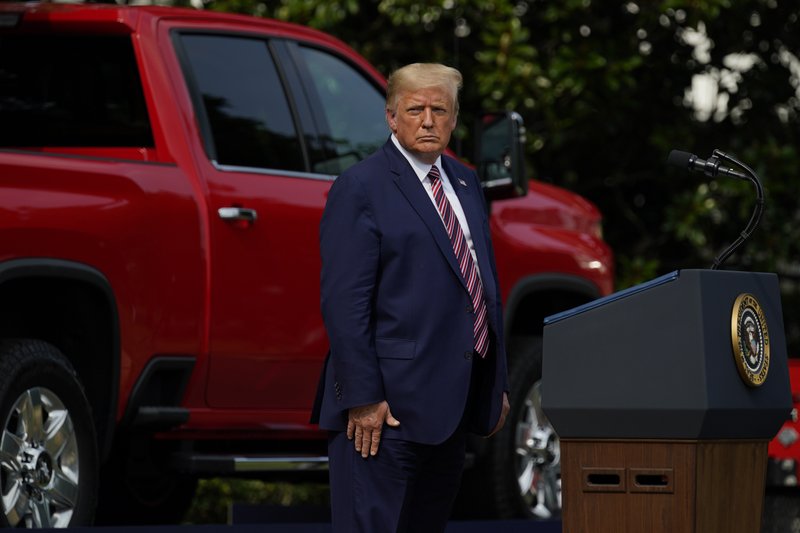US President Donald Trump will resume regular televised coronavirus briefings Tuesday in a possibly fraught bid to restore his standing with US voters who accuse him of badly fumbling the pandemic response.

US President Donald Trump pauses as he speaks during an event on regulatory reform on the South Lawn of the White House, Thursday, July 16, 2020, in Washington. (Photo: AP)
Early in the crisis that has now left more than 140,000 people dead in the United States and triggered mass unemployment, Trump appeared almost daily in the White House briefing room.
But those primetime appearances often became rambling, combative sessions in which the president acted more like he was at a campaign rally than a briefing on a national crisis. They ended abruptly in late April after Trump was mocked for musing on the potential for injecting coronavirus patients with detergent.
Now, with polls showing Trump headed for election defeat against Democrat Joe Biden and more than two thirds of Americans mistrusting him on the coronavirus, he hopes to seize back control of the narrative.
The White House plan is for Trump to keep sessions brief and to the point, emphasizing positive news on vaccine development and his proposals for economic recovery -- without getting sidetracked into his usual monologues about enemies, the unfairness of the media, and pet medical theories.
"These will be very newsy briefings with a lot of information ... the American people will hear," spokeswoman Kayleigh McEnany told the Fox & Friends news show Tuesday.
In his own preview, Trump said Monday that he'd be explaining how "we're doing very well in so many different ways."
"I think it's a great way to get information out to the public," he told reporters.
The question as always with Trump -- a real estate billionaire who became president in his first ever attempt at running for office -- is whether he will stay on message.
Medicine or politics?
It is not yet known whether he will appear alongside medical experts, particularly the renowned infectious diseases doctor Anthony Fauci, who has won national trust for his straightforward assessments on COVID-19.
"They are still figuring that out," Surgeon General Jerome Adams said Tuesday on CBS, when asked if Fauci and Deborah Birx, another top government medical advisor, would be present.
With the virus now tearing through Republican-led states like Florida and Texas, Trump's sunny and often factually challenged assessments of the COVID-19 crisis are wearing thin even among his own voters.
After months of mocking the use of masks and encouraging libertarian and Republican protesters who claim that mask rules infringe their civil liberties, Trump on Monday tweeted a picture of himself with his face covered -- and called it "patriotic."
Yet Trump's pivot to appearing to take the disease more seriously has limits. Just this Sunday on Fox News, he repeated in an interview one of his favorite claims: that the virus will "disappear" by itself.
Reminded that the disease is only gaining strength, with no end in sight, Trump insisted: "I'll be right eventually."
The other question is whether Trump will resist using the live television limelight to dive into election politics -- something that could backfire with Americans worried about their health.
He trails Biden in all polls and is retooling his campaign to an ever-darker message in which he tries to paint the Democrat as backed by anarchists and Venezuelan-style socialists.
Trump's Twitter feed Tuesday gave an indication of his divided attention.
On one hand there was the upbeat tweet: "Tremendous progress being made on Vaccines and Therapeutics!!!"
And on the other, the evidence-free, alarming claim -- shocking for a sitting president -- that the election in which he is forecast to lose will be rigged.
"Mail-In Voting, unless changed by the courts, will lead to the most CORRUPT ELECTION in our Nation’s History! #RIGGEDELECTION."


